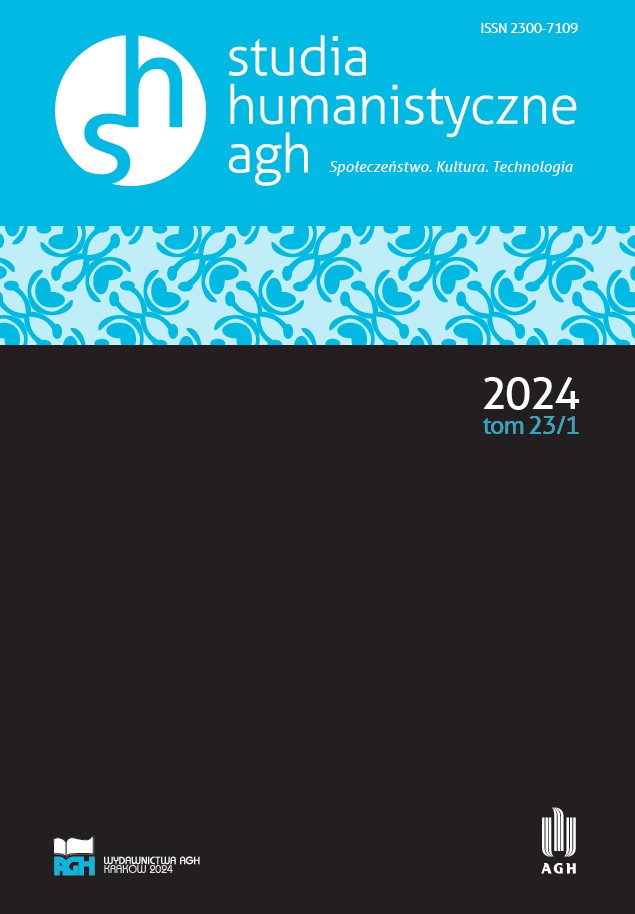Education in the Digital Era: Adapting the Learning Process Through the Potential of Virtual Reality
DOI:
https://doi.org/10.7494/human.2024.23.1.6348Keywords:
education, Virtual Reality, modern teaching methods, technologyAbstract
Modern education faces challenges related to personalized learning and the development of key soft skills among students. In response to these needs, this article presents an analysis of the application of Virtual Reality (VR) technology in education as an effective platform to achieve these goals. VR allows the creation of realistic and engaging experiences, enabling the personalization of educational materials and tasks, while also supporting the development of soft competencies. Through virtual environments, students can explore, review, and make decisions during the learning process, thereby enhancing engagement and knowledge acquisition effectiveness. Moreover, VR facilitates the practice of interpersonal skills through interactions with virtual characters and simulations of diverse scenarios. The article also addresses challenges associated with VR implementation in education, such as costs, hardware accessibility, and the need for teacher training. Potential solutions to these issues are proposed, including funding opportunities, resource-sharing among schools, and teacher training programs. In conclusion, the article emphasizes the significance of further research and development in the field of VR in education to fully leverage the potential of this technology and contribute to better aligning education with the needs and abilities of students.
Downloads
Downloads
Published
Issue
Section
License
Copyright (c) 2024 © Wydawnictwa AGH, Kraków 2024, Creative Commons CC-BY 4.0 License

This work is licensed under a Creative Commons Attribution 4.0 International License.
Authors who publish with this journal agree to the following terms:1) Authors retain copyright and grant the journal right of first publication with the work simultaneously licensed under a Creative Commons Attribution License that allows others to share the work with an acknowledgement of the work's authorship and initial publication in this journal.
2) Authors are able to enter into separate, additional contractual arrangements for the non-exclusive distribution of the journal's published version of the work (e.g., post it to an institutional repository or publish it in a book), with an acknowledgement of its initial publication in this journal.
3) Authors are permitted and encouraged to post their work online (e.g., in institutional repositories or on their website) prior to and during the submission process, as it can lead to productive exchanges, as well as earlier and greater citation of published work (See The Effect of Open Access).



